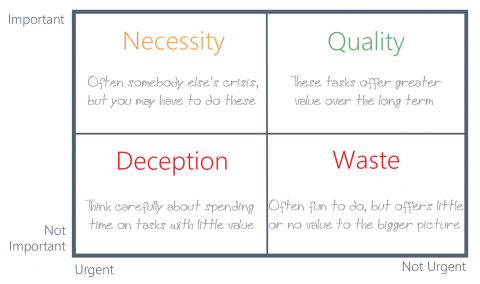Look around you. What can you see?
Well, actually that is the point: you can’t see it. Uncertainty, that is. It is all around us.
Whether it be due to the current political and economic environment or changes afoot in your company, or maybe even at home. Children growing up – what will their future hold? How will we deal with them going to school or off to uni, and how will they cope?
The last two and half years of my life have brought tremendous change and the one thing that kept me awake in the early days of things changing around me was the question, “What will happen next? How will it all work out?” I wanted the answer. I wanted a crystal ball. I wanted to know everything would be ok.
The problem with these questions is that once the brain gets to work on them it can create many answers, often ranging from the fantastical through to downright scary. And of course, all of them are not real or true: they are just made up in my own inner world of thoughts, hopes and fears.
Paying too much attention to them is dangerous. If you do spend time believing everything you think, you begin to act out those thoughts, finding clues in things around you that confirm that your inner world of thoughts is actually REAL.
Worrying doesn’t help
In reality, if I have learnt one thing over the last two years of turmoil in my own life, it is that I just don’t know what will happen next… and how it will affect me.
Once I discovered that all my worrying, questioning and thinking was, in effect, not having much, if any, bearing on things, it gave me a kind of peace and confidence that it would all be ok.
Now, you need to make a distinction here between thinking that prepares you for what is coming and thinking that is just a waste of effort. Sometimes, thinking things through, getting ready, dotting the I’s and crossing the T’s is prudent and sensible. However, with all that thinking you still have to acknowledge that it is all done with good intentions and even then… you still don’t know what will happen. And that’s ok.
Preparing for Brexit
Many of the businesses we work with have been making plans for Brexit; thinking about the impact and perhaps already making changes. Some people are very worried about the repercussions of how it will all work out. That, of course, is very sensible and for all of us business owners it makes sense to be prepared. However, the world is crying out for certainty. The media wants and demands that politicians tell us what is the plan, what will happen?
The hindsight bias kicks in as well, with lots of clever people on TV and radio telling us “I can’t believe the government didn’t see that coming”. We are, of course, all prone to knowing more after the act, or looking at things differently once more information comes to light.
We can and should prepare for Brexit in our businesses as much as we think is right and necessary… but then we have to sit back, wait and see, and get comfortable with the uncertainty. There’s nothing else we can do.
Accepting uncertainty
Do you know for a fact what you will be doing on this very same date next year?
Of course, you don’t (unless you have a wedding or something already planned in). But, if you are normal, you accept that you don’t know and you get on with life. We’re all constantly making the best decisions possible with all the information we have to hand.
An exercise that a few of our clients have found useful is to think of all the concerns that you have currently. Write them down, make a list.
Once you have done this, go through the list and pick out the top three things that really require your attention. Separate out the stuff that is just not important enough to really concern you.
Now you have a list of important issues ask the yourself the following questions:
- What is really at the crux of the issue?
- Why is it bothering you?
- What are the consequences of doing nothing?
- What would be an ideal solution?
- Who could help you?
- What are the main chunks of the problem that you need to think through?
- Under each chunk, what could you do to move towards your ideal solution?
- What could you do within the next 24 hours to help you move towards your ideal solution?
- Now you have got a plan, what help will worrying about it further bring?
Ok, so now you have the bare bones of an action plan.
Then, get on with it… take action.
You can actually take action in the knowledge that you are doing the very best you can based on the knowledge you have. That’s it. The future will still be uncertain, we can’t change that, but we can still move forward.
We’re all in the same boat
Brexits, kids, relationships, jobs, the economy, parents, football teams, exam results etc etc… The list is endless and none of us know how things will work out.
At my friends Sarah & Alex’s house hangs a sign that always makes me smile. It says:
“Don’t take life too seriously. None of us gets out alive anyway.”
I suppose there is some certainty in that.
The real question for us all to think about is a yes or no one and simply put is:
Am I doing my best with the information and knowledge I currently have?
If the answer is yes, then get comfortable with uncertainty, safe in the knowledge that you’ll be ok. You’ll adapt and make it work. Whatever “it” is…



